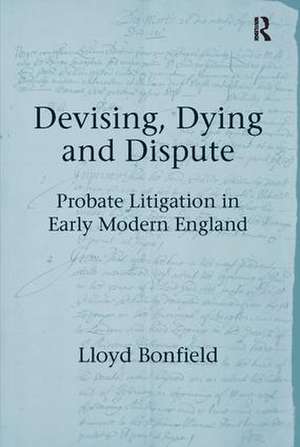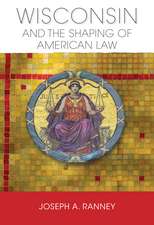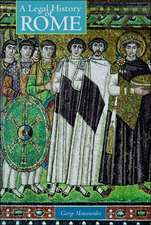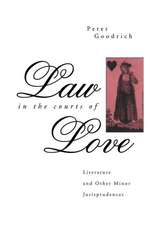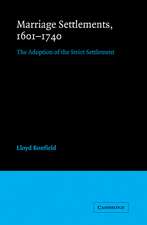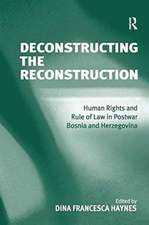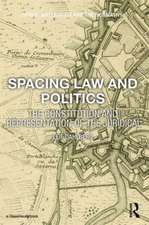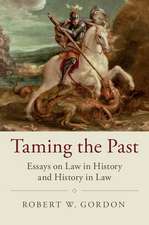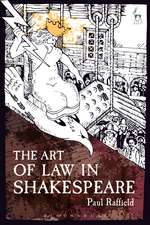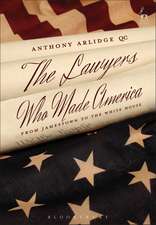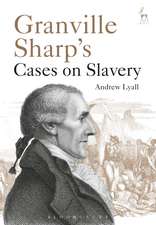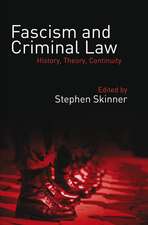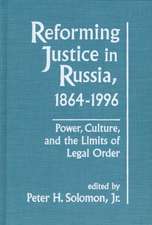Devising, Dying and Dispute: Probate Litigation in Early Modern England
Autor Lloyd Bonfielden Limba Engleză Paperback – 22 mai 2017
| Toate formatele și edițiile | Preț | Express |
|---|---|---|
| Paperback (1) | 469.34 lei 43-57 zile | |
| Taylor & Francis – 22 mai 2017 | 469.34 lei 43-57 zile | |
| Hardback (1) | 1064.19 lei 43-57 zile | |
| Taylor & Francis – 28 mai 2012 | 1064.19 lei 43-57 zile |
Preț: 469.34 lei
Nou
Puncte Express: 704
Preț estimativ în valută:
89.81€ • 94.00$ • 74.75£
89.81€ • 94.00$ • 74.75£
Carte tipărită la comandă
Livrare economică 31 martie-14 aprilie
Preluare comenzi: 021 569.72.76
Specificații
ISBN-13: 9781138117051
ISBN-10: 1138117056
Pagini: 310
Dimensiuni: 156 x 234 x 21 mm
Greutate: 0.45 kg
Ediția:1
Editura: Taylor & Francis
Colecția Routledge
Locul publicării:Oxford, United Kingdom
ISBN-10: 1138117056
Pagini: 310
Dimensiuni: 156 x 234 x 21 mm
Greutate: 0.45 kg
Ediția:1
Editura: Taylor & Francis
Colecția Routledge
Locul publicării:Oxford, United Kingdom
Cuprins
Contents: Preface; Introduction: devising, dying, and dispute in early modern England; The 'culture of will-making' in early modern England. Part I The Forum and Its Litigation: Probate jurisdiction in early modern England: England's own 'peculiar institution' in crisis; Disputes: the subject matter of testamentary litigation. Part II The Legal Issues: Mental Element in Will-Making and the Authenticity of Legal Acts: 'Of sound and disposing mind and memory': testamentary capacity and undue influence; Estate plans by 'word of mouth': the validity of nuncupative wills; The sanctity of the written word: testamentary causes challenging the authenticity and due execution of written wills; Which shall it be? Multiple testamentary documents and the revocation of wills. Part III Windows into Social Relationships: Contested successions and contested marriages: evidence from the records of the Prerogative Court of Canterbury; Discord and inheritance: windows into family relations from testamentary litigation; The myriad roles of women in will-making and testamentary litigation in late 17th century England; Conclusion; Appendix; Bibliography; Index.
Notă biografică
Lloyd Bonfield, is Professor of Law and Director of the Center for International Law at New York Law School, USA
Recenzii
'An authoritative introduction to one of the richest and least explored sources for English social history, and in particular the history of family relationships.' Keith Wrightson, Yale University, USA 'A short review cannot encapsulate the richness of these chapters. Legal, social, and economic historians will find much of value. Also of great benefit is a detailed appendix with a primer on early modern probate jurisdiction and a discussion of the primary sources... Bonfield’s book sheds important light on legal and social understandings very different from our own, yet in some ways strikingly familiar.' Law & History Review '... [Devising, Dying and Dispute] makes a useful and accessible contribution to legal history. Specialists in that field will provide its principal readership, though social historians will also find in it much to interest them.' Renaissance Quarterly 'This is a social and administrative history of the law, written by a well-regarded legal historian. Its principal strength lies in the exceptional clarity and precision with which the author, Lloyd Bonfield, sets out the letter and logic of the law and the workings of a senior ecclesiastical court. Its main contribution is to offer a comprehensive study of early modern probate litigation and an analysis of an important arena in which law and social practice interacted.' English Historical Review 'Bonfield is absolutely correct ... in identifying the PCC wills as a rich and untapped source for social history, particularly that pertaining to unhappy families and broken social relations... While not itself a social history, Bonfield’s book will be essential reading for social historians exploring what happened when someone devised, died, and disputed in early modern England.' Canadian Journal of History '... this thoughtful study of probate litigation proves an enlightening and stimulating read. While we have long known that the final wishes of the dead tell us a great deal about the l
Descriere
Focusing on property law as reflected in cases of disputed wills, this book provides a fascinating glimpse into English seventeenth-century society. As well as charting shifting conceptions of property and inheritance law, accounts taken from the numerous cases quoted offer a poignant reminder of how the law had to cope with difficult situations affecting real lives.
